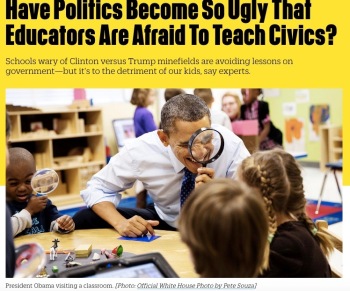As promised, here is your guide (TE 408 Model Lesson Plan) to writing up a lesson plan for your portfolio and all future lesson planning in TE 408. Get familiar with this doc!
Tag: lesson plans
Essential Questions
The questions we ask set parameters for learning and can open and close possibilities for learning. Wiggins & McTighe have a great article, What Makes a Question Essential? that discusses what does and doesn’t qualify and the specific considerations to be made in order to form good essential questions for lessons and units. Check it out!
Click here for a Teaching Channel Video on Essential Questions.

Microteaching + Lesson Planing
The first round of Spring microteaching calls for you to submit either a written or electronic lesson plan (via email) before you teach. The lesson plan doesn’t need to follow a specific predetermined format, but it must include:
1. A RATIONALE
2. PRACTICAL GOALS/OUTCOMES
3. MATERIALS REQUIRED
4. CONTENT STANDARDS MET
5. SPECIFIC PROCEDURES
6. ASSESSMENT
Again, feel free to utilize this Common Teaching Strategies document to give you ideas.
AND, here is your 408 Microteaching Rubric: note what will be expected of your content knowledge, skills, and professionalism and plan accordingly!
*Note that your plan must include at least 1 explicit state or national standard that you are meeting: Michigan Social Studies Content Expectations — National Standards for Social Studies Teachers.

2nd Round of Micro-Teaching
*Please note that these dates tentative:

Reading, Rubric, & Curriculum
For Wednesday please read The Savage & The Slave by Lintner; you’ll be responding to a writing prompt on your site by next weekend. Be sure to become familiar with our Micro Teaching Rubric as well!
And here’s a review of the curriculum types we considered:

1st Round of (official) Micro-Teaching

Lesson Planning Resources
Hey, all —
Here are the materials I shared in class today. Blank template:
https://docs.google.com/document/d/1ZmZ0ClXYM4mUfpb1I2Qcm6eMcv9htPFdY3idaSb4V24/edit?usp=sharing
Pullman Lesson plan – https://docs.google.com/document/d/1PozyBm8ub7uRkp9bKm_7PCX6EnTj-5iVd4D77MXvZok/edit?usp=sharing
Planning a Lesson on the Political Spectrum
You are tasked with planning -and then teaching- your first lesson plan and it is to be a 15-minute lesson on the political spectrum. The main focus is NOT so much on the ‘what’ (the content), but rather the focus and purpose is on the ‘how’, the process of developing and executing a lesson plan. Thus, we won’t fixate on the content knowledge, but rather concern ourselves with the procedures of pedagogy. Your lesson plan must include:
1. RATIONALE
2. PRACTICAL GOALS/OUTCOMES
3. CONTENT STANDARDS MET
4. SPECIFIC PROCEDURES
5. ASSESSMENT
Feel free to utilize this Common Teaching Strategies document. For starting places with content, because we don’t have a physical textbook, you can use the “Political Considerations” post (from below) to give you information.
(Quick) Timeline: in our PLC’s, we will plan a bit in class on Wednesday, and then teach a draft version of the lesson on Thursday… That means you will have some work to do if you’re going to make a slide show, bring in props, or develop another activity.
DO THIS!
- Fill out an index card w/feedback for each person’s lesson & pass it off to them.
- Post your revised lesson plan, after getting feedback from peers, to your personal site by class on Monday!
9/9: Ugly Politics, Instructional Strategies, & Ice-Breaker Sign Up
 By Monday, please read this poignant article, Have Politics Become so Ugly that Teachers are Afraid to Teach Civics? about teaching politics in today’s tumultuous climate. This will give us lots to think about and interactive with.
By Monday, please read this poignant article, Have Politics Become so Ugly that Teachers are Afraid to Teach Civics? about teaching politics in today’s tumultuous climate. This will give us lots to think about and interactive with.Fendler Reading & Classroom Strategies (for 9/7 & 9/8)
For next Wednesday, please read the Edwin & Phyllis’ Conversation piece (by MSU’s own Lynn Fendler) and by Thursday, complete your student page.
Also, as we consider what it takes to teach a lesson plan well (not just talk about what you know), you may want to survey different ways of teaching and some resources:
- Here is a lis
 t of Some Common Teaching Strategies that you may not be familiar with to introduce you to differing approaches and help you think through what that might look like in practice.
t of Some Common Teaching Strategies that you may not be familiar with to introduce you to differing approaches and help you think through what that might look like in practice. - Here is a website: Classroom Resources: Lesson Plans with links, ideas, & etc.
